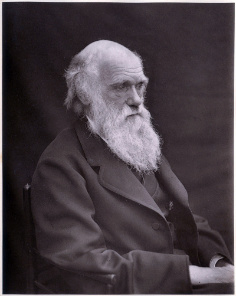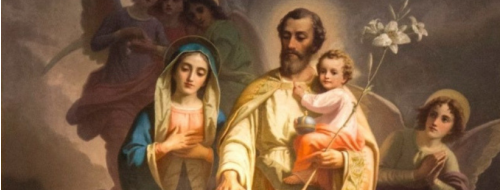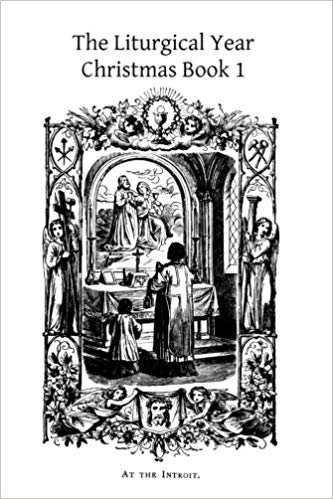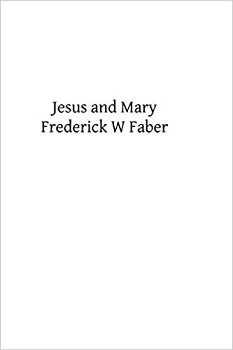Advent 2023: Olive Tree

Volume VIII/Issue 8-9/Advent 2023


From The Editorial Desk
The Blessing (And Curse) Of Knowledge
Most of the world is in great turmoil because they have chosen to ignore our Creator.
But Catholics who read there bible are not surprised by this confusion. Jesus predicted that perilous times would come along with a great increase in knowledge. Consequences of that knowledge have been both good and bad.
Innovative use of that knowledge has created the most prosperous era in the history of man. In that prosperity, The Church has taken the gospel to the “ends of the earth,” fulfilling the Matthew 24:14 prophecy:
“And this gospel of the kingdom, shall be preached in the whole world, for a testimony to all nations, and then shall the consummation come.”
But history also tells us that prosperity almost inevitably leads to moral decay. People become lovers of pleasure rather than lovers of God. This provides Satan an opportunity to take them back into bondage. To accomplish this, he fills evil men's hearts with the spirit of Antichrist who plots grandiose schemes for world domination.
Today those schemes are no longer hidden. The religions of Charles Darwin and Karl Marx have combined to create an almost universal alternative worldview to that of God.

Charles Darwin

Karl Marx
Contrary to their sales pitch, both are designed to eliminate God from the picture and accelerate Satan’s goals of death and destruction.
And that secular alternative worldview is based on lies, another of Satan’s specialties.
One of those lies is that Marxist socialism, if done right, can rescue the prosperity that we are losing. But the Bible says that prosperity is a blessing from God as a reward for obedience.
Another one of Satan’s tools is fear.
The panic over climate change that we are watching has Satan’s fingerprints all over it. Several decades ago, world leaders who are members of such organizations as the Council of Foreign Relations (CFR), World Economic Forum (WEF), various United Nations departments and affiliates, and numerous others, were trying to decide how to engineer the one world government that the Bible predicts.
They were seeing that using the Cold War to scare people was not working so well. Looking around, they decided that the environment was something that they could use because it affected everyone on the planet. They tweaked their computer models to predict everything from disastrous global warming to a new Ice Age.
When their predictions failed, they simply revised them and issued new alarms. But we know from the Bible that God is in charge of the weather and there's not much that man can do about it. Jesus observed that God sends the rain on the just and the unjust (Matthew 5:45). And Moses cautioned the Israelites that their harvests depended on their obedience. (See Lev. 26 and Deut. 11.)
Jesus said that when we see these things come to pass, we are to not fear, but to look up in anticipation of our redemption. (Luke 21:28)
And we know that when we look up, God is looking down on mankind's arrogance. David wrote in Psalm 2 that when the heathen rage:
“He that sitteth in the heavens shall laugh: the Lord shall have them in derision.”
As Christians we are to be “salt and light,” a strong flavoring of truth in this confused culture. That is best accomplished by total dedication to the Great Commission. We are first commanded to “preach” the gospel according to Mark 16:15. That means to get the good news in front of as many people as possible as quickly as possible.
After that, we are to take those who respond to the good news and make them disciples by instructing them in the way of righteousness.
The Catechism of the Counsel of Trent is a great way to quickly get the good news to a lot of people. It also goes a long way in teaching righteousness to new (and old) believers.
But we need to be busy, for we see the shadows of the night coming when no man can work.
WORLD MONEY SYSTEM MOVING RIGHT ALONG —TO WHERE?

In order for the Antichrist to get complete control of our lives, he must limit the free use of money.
Since most people only have a vague notion of how money fits into the overall picture, the advocates of world government have quietly made great advances toward their goal.
The latest development is a handbook recently published by the International Monetary Fund, a department of the United Nations. It is entitled the Virtual Handbook Of Central Bank Digital Currency.
This handbook lays out the next step in the plan to remove control of the world's money from the common man and hand it over to the coming world government.
To understand the importance of this development, we need to recognize that a dependable U.S. dollar has always been part of our lives. It is like religious freedom, where we have grown up to assume that it is just there.
But behind the scenes some tectonic changes have been made that affect the value of the dollar.
What they call “inflation” suddenly becomes a concern when it takes a lot more dollars to fill a grocery cart or a gasoline tank. But this is just one small part of the big picture that leads to what Revelation 13 describes as full control of our buying decisions.
One early step that we did not notice was the elimination of cash. Some studies estimate that more than 80% of all transactions are now done in digital currency rather than hard dollars. Some people still remember when it was safer to put your money in the mattress rather than in the bank. Major steps have been taken to guarantee that the money that is in the bank is safe.
But while we trusted the system to keep our money safe, it has lost over 90% of its value in the last 100 years.
In other words, it takes 90% more dollars to buy a loaf of bread or a gallon of gasoline than it did 100 years ago. Even though some tell us that that is malfeasance by the U.S. central bank called the Federal Reserve, it is still a fact of life, whether that is correct or not.
There is adequate suspicion about this theory to raise concern about transferring control of the money supply to a global central bank that is part of the United Nations.
But the larger concern here is the fact that these changes in handling the money supply have been increasingly taking control AWAY from the people and GIVING it to national governments.
In the last few months, we have become aware that banks are cancelling accounts and refusing explanation. Since several of these accounts have been held by Christians or Christian organizations, this looks like the beginning of what the Bible predicts in Revelation chapter 13.
And if these are isolated incidents on a local level but are test cases for what they really want to do nationally and globally, that prophecy may be just around the corner.
If we look at the restrictions experienced by Christians that now try to survive in the Marxist environment of countries like China, Cuba, and Venezuela, the path that we are on appears quite visible.
That path has led them to hyperinflation, shortage of food, and underground churches. The digital money also provides a way for the government to watch how the people spend their money. Using it to pay tithes to an underground church can get you an unplanned prison ministry.
If we give control of our money to the UN, the wonderful freedoms that we have had will continue to evaporate.
As biblical prophecy unfolds before our eyes, persecution appears very likely.
Many before us have paid a high price for the freedom that we take for granted. The least that we can do is use what's left of that freedom to rescue as many as we can from the eternal damnation that the current culture is moving them toward.
If Christ Had Not Come...
“If I had not come….”—John 15:22.
Our Lord is addressing His handful of followers. His theme is the aggravated guilt of the world that hated Him. He had brought light into this dark world in the person of Himself, but men had revealed their sinfulness by rejecting the light. “And this is the judgment: because the light is come into the world, and men loved darkness rather than the light: for their works were evil.”—John 3:19.
If Christ had not come, they would not have been guilty of rejecting the light, but now that He had come to His own, and now that they had received Him not, their condemnation was certain.
‘If Christ had not come.’ Praise God, this is not true! It is merely a supposition. There is no reality in the “if ”—Jesus did come!
Nineteen hundred years ago, this world lay wrapped in solemn, midnight darkness. It was not an atmospheric darkness only. A spiritual darkness brooded over the face of the world. For centuries, the worship of God, save here and there in a little remnant, was dead in the human heart. A voice was heard from Edom calling, “Watchman, what of the night?” and the answer came back, “The morning cometh, and also the night.” It was a long, silent night, with a spiritual darkness that could almost be felt.
But then the heavens were trembling with coming glory. Across the sky moved the first Christian missionary, the star of Bethlehem. Following its leading along the highways of Judea came the wise men, for true wisdom lays its tribute at the feet of Jesus.
At last, the hour arrived, the clock struck, and the veil of darkness was rent in twain, and Jesus Christ, the Light of the World, was here among men.
A little Child, a little star, A stable rude, the door ajar. Yet in that stable, crude, forlorn, The hope of all the race was born.
A little Child. Is that all? Yes, that is all, but it is all-sufficient. In this Child, all streams of past prophecy converge. From this Child will radiate all the glowing lines of history.
So He was born, and such a birth! So He lived, and such a life!
It was a short life Jesus lived. He lived not long but intensely. He went about doing good. He gave sight to the blind, healed the sick, restored the afflicted and raised the dead. Always working, ever busy, unloosing the bonds of Satan, unwinding the Serpent’s coils.
His path was a sorrowful one. His first bed was a manger; His last was a cross. His first companions were cattle; the last were thieves. His first pillow was of straw; His last was a crown of thorns. Born in another man’s barn, eating at another man’s table, sailing the lake in another man’s fishing boat, buried in another man’s grave.
His path at last led to the slopes of Golgotha, where
Under an Eastern sky, amid a rabble cry, This Man went forth to die—for me. Thorn–crowned, His blessed head, Blood–stained, His every tread, As cross–burdened on He sped—for me.
Now they reach the summit of Calvary. There, sin begins its cruel work. It sharpens the nails and the spear point. It wields the deadly hammer. There, “they crucified him, and with him two others, one on each side, and Jesus in the midst.” (John 19:18).
Well might the sun in darkness hide, And shut his glories in, When Christ, the mighty Maker, died For man, the creature’s sin.
Now He lies in the tomb, the hope of the world lying dead in a grave. At the mouth of the grave, a great stone is rolled; upon the stone, the seal of Imperial Rome; before the sealed grave, a cordon of soldiers. Earth and Hell banded together to keep the Lord in the sepulcher.
But praise God…
Death cannot keep his prey— Jesus, my Saviour! He tore the bars away— Jesus, my Lord!
Up from the grave, He arose as Lord over death, conqueror of Satan, having obtained eternal redemption for us.
How the angels must have sung on that happy resurrection morning: ‘This is He that liveth and was dead, and behold He is alive forevermore!’
Yes, the text is only a supposition. There is no reality in the words, “If I had not come.” That little “if ” enshrines a baseless dream. Bless the Lord, O my soul, because Jesus did come!
Let us use that “if ” as a window to let some light in upon the meaning of His coming. We might prize our blessings more if we were bereft of them. Let us suppose then that Jesus had not come and that the blessings His coming brought were taken away. Without Christmas, what have we left? If Christ had not come, what then?
There Would Be No Forgiveness of Sins
In Ephesians 1:7, we read: “In whom we have redemption through his blood, the forgiveness of sins.” We have forgiveness; that is true because Christ has come. However great, however many our sins may have been, they are all, every one of them, blotted out. In the Book of God, there is not a single sin belonging to the old, rebellious life against any man or woman in this world whose trust is in the Christ of the cross—not a single one or even the shadow of one. As the an old hymn, I sang growing up says,
My sin, O the bliss of this glorious thought My sin, not in part, but the whole, Is nailed to the cross, and I bear it no more, Praise the Lord, praise the Lord, O my soul!
But if Christ had not come—no forgiveness. Think of it. Sin piled upon sin; transgression heaped on transgression; iniquity added to iniquity and together making a soul-crushing burden to be carried to the grave without hope of deliverance. Think of standing before an infinitely holy God on the Day of Judgment with a mountain of unforgiven sin towering above us as a witness to the justice of our eternal condemnation.
There Would Be No Adequate Revelation Concerning the World to Come
In II Timothy 1:10, we read ‘that Christ by His appearing’ “hath brought to light life and incorruption by the gospel:” By rising from the dead, He revealed this glorious, stupendous fact that not only does the soul live after death, but the body will one day rise and join it. The heathen world believed that the soul lived on but never dreamed of a dead body raised to immortality.
Now, suppose Christ had not come to reveal this fact; there would be no light beyond the grave. It is true that in the Old Testament, there are references to the afterlife, but those faint gleams of light, uninterpreted by the teaching of Christ, merely intensify the darkness surrounding the grave.
Beyond the sunset’s crimson bars, Beyond the twilight and the stars; Beyond the midnight and the dark—
What? Continued midnight, unlighted gloom, if Jesus had not come.
If there were no certainty beyond the grave, such as Jesus brought, then there would be no sure hope of Heaven. Think of life with the hope and certainty of Heaven blotted out.
Death Would Be Conqueror and Satan Victor in the Human Drama
Yonder is a mother whose child Death, the robber, has taken. She sings to herself through her tears:
Two little feet went pattering by, Years ago. They wandered off to the sunny sky, Years ago. They crept never back to the love they left, They climbed nevermore to the arms bereft, Years ago.
And then Hope kisses that mother’s tears into jewels as she sings:
Again I shall hear the two little feet Pattering by— Their music a thousand times more sweet, In the sky. I joy to know that a Saviour’s care Will keep them safe till I meet them there, By and by.
There would be no hope for that mother or any other mourner if Christ had not come. The earth that falls from the gravedigger’s shovel with hollow sound upon the coffin lid would be the death knell of all such hopes.
Oh, how terrible if Jesus had not come! All the joys and laughter, all the hopes and aspirations of life would end in an eternal cemetery. Thousands of years of human history would end in a hideous empire ruled over by the black angel of Death.
Think of it—a world without Christ, a world without Christmas; therefore, a world without salvation and hope—no Gospel to preach, no Christ to exalt, no cleansing blood to recommend, no Christmas bells to ring; the hope of the world, the expectation of millions of believers, made to depend on the truth or untruth of one little word—the verity or falsity of an “if”—“If I had not come.”
But blessed be God, there is no “if.” Blessed be God at this Christmastime, Jesus did come. Out over the hills and plains of Bethlehem rings the song, “Glory to God in the highest, and on earth peace, good will toward men” (Luke 2:14). Into the ears of the wondering shepherds comes the angelic announcement, “For, this day, is born to you a Saviour, who is Christ the Lord…” (Luke 2:11).
Down from His royal throne, down from His dwelling of light, down from the streets of gold, down from the gates of pearl:
Joy to the world! the Lord is come; Let earth receive her King; Let every heart prepare Him room, And Heav’n and nature sing.
Sing of the pardon He brings. Sing of the peace He bestows. Sing of the Heaven He reveals. Sing of the Gospel that saves. “The Son of man is come to seek and to save that which was lost” (Luke 19:10). Hallelujah, what a Saviour!

A Line in the Sand
Perhaps you’ve read about the Battle of the Alamo in 1836. Located in San Antonio, Texas, the Alamo fortress was defended by a band of volunteers for 13 long days against a much larger Mexican army. The story, perhaps a legend, is that Col. Travis, realizing they could not long prevail, drew a line in the sand asking who would stand with him and die. Reputedly, only one of the 190 men fled; the others were killed within hours.
This reminds me of an Old Testament occasion (Exod. 32:26): “Then standing in the gate of the camp, he said: If any man be on the Lord's side let him join with me.” In effect, he was drawing a line in the sand.
When they brought the adulterous woman to Jesus (John 8:1–11), he “bowing himself down, wrote with his finger on the ground as though he heard them not.” (vs.6). The line he drew in the sand that day convicted the woman’s accusers and left us a powerful lesson on forgiveness.
Each illustration demonstrates that there is a time to decide, a time to be courageous and a time to forego neutrality. Jesus made clear that he expects us to draw our own line in the sand.
Everyone therefore that shall confess me before men, I will also confess him before my Father who is in heaven.
But he that shall deny me before men, I will also deny him before my Father who is in heaven.
Do not think that I came to send peace upon earth: I came not to send peace, but the sword.
For I came to set a man at variance against his father, and the daughter against her mother, and the daughter in law against her mother-in-law.
And a man's enemies shall be they of his own household.
He that loveth father or mother more than me, is not worthy of me; and he that loveth son or daughter more than me, is not worthy of me.
And he that taketh not up his cross, and followeth me, is not worthy of me.
He that findeth his life, shall lose it: and he that shall lose his life for me, shall find it. —Matt. 10:32–39.
If we meet the Lord’s expectations of us, it is imperative that we take our stand (draw a line in the sand) regarding:
I. Deity!
Hear, O Israel, the Lord our God is one Lord.
Thou shalt love the Lord thy God with thy whole heart, and with thy whole soul, and with thy whole strength. —Deut. 6:4-5.
There is no plurality of gods. The gods men make are so much of nothing because they are nothing. The God who “created the heaven and the earth” (Gen. 1:1) is the God, the only God and the true God!
II. Destiny!
Blessed be the God and Father of our Lord Jesus Christ, who according to his great mercy hath regenerated us unto a lively hope, by the resurrection of Jesus Christ from the dead,
Unto an inheritance incorruptible, and undefiled, and that cannot fade, reserved in heaven for you,
Who, by the power of God, are kept by faith unto salvation, ready to be revealed in the last time. —I Pet. 1:3–5.
The new birth we received at our baptism rescues us from the perils of Hell and transports us to our “inheritance…in heaven” (vs. 4).
III. Doctrine!
…that thou mightest charge some not to teach any other doctrine,
Not to give heed to fables and endless genealogies: which furnish questions rather than the edification of God, which is in faith. —I Tim. 1:3-4.
When we teach the Word of God, there can be no legitimate deviation from the revealed truth of God. We must stay true to the truth.
IV. Deportment!
Not defrauding, but in all things shewing good fidelity, that they may adorn the doctrine of God our Saviour in all things:
“Teaching us that, denying ungodliness and worldly lusts, we should live soberly, righteously, and godly, in this present world.” Instructing us, that, denying ungodliness and worldly desires, we should live soberly, and justly, and godly in this world, —Titus 2:10, 12.
The character we exhibit should reflect the highest degree of integrity. Moral purity must be maintained. Our attitudes, our appearance, our actions, our attire, our everything should be in line with our Catholic faith and demonstrate a distinctively Christian lifestyle.
V. Duty!
But be thou vigilant, labour in all things, do the work of an evangelist, fulfill thy ministry. Be sober. —II Tim. 4:5.
As a child of God, we are a servant, an ambassador and a witness. We have been entrusted with the task of carrying His Gospel (Matt. 28:19, 20) and His whole counsel (Acts 20:27) to the whole world.
When we take up our cross (Luke 9:23) and follow the Lord, we do so as a sacred duty from which we will not be deterred.
VI. Deceivers!
But there were also false prophets among the people, even as there shall be among you lying teachers, who shall bring in sects of perdition, and deny the Lord who bought them: bringing upon themselves swift destruction. —II Pet. 2:1.
Some are totally corrupt at the core. Others start well, but after a while, they start changing and consequently compromise their message and their ministry. The scriptural instructions are clear; we should not play dumb on this.
Having a form indeed of godliness, but denying the power thereof. Now these avoid. (II Tim. 3:5).
VII. Deputation!
For Christ therefore we are ambassadors, God as it were exhorting by us. For Christ, we beseech you, be reconciled to God. —II Cor. 5:20.
We have been commissioned, authorized and given a major assignment. We are the Lord’s representatives here on this earth. With His orders in hand, we are to be His ambassadors everywhere we go.
These seven categories demand that we draw “a line in the sand.”
That means (1) we establish a boundary, (2) we set a limit, (3) we go up to a certain point but no further or (4) here is the point that we will not pass.
If ever there has been a time when God’s people needed to “draw a line in the sand” and declare ourselves, it is now!
In our world where so much is going wrong, you and I, with the Lord’s help, can be right and do right. We may be hated, criticized and punished, but we can still “draw our line in the sand.”
Let’s do it today and every day.
HAMAS TERRORISTS ORDERED TO KILL AS MANY PEOPLE AS POSSIBLE, TARGET SCHOOLS
Newly uncovered documents reveal that Hamas terrorists were directed to kill as many people as possible, with a specific focus on elementary schools and youth centers. These meticulously rehearsed attacks resulted in a death toll exceeding 1,300 in Israel alone, according to official sources. …The Wall Street Journal reported [that] written orders carried by Hamas explicitly directed them to maximize human losses and take hostages,…instructing militants to “achieve the highest level of human losses.” Another set of orders focused on Sa’ad, a 670-person collective farming community, with the directive to “take control of the kibbutz, kill as many individuals as possible and capture hostages.” Details in the recovered documents also indicate that elementary schools and youth centers were among the primary targets….
Christian groups accuse Washington AG of unlawfully investigating them due to pro-life convictions
Alliance Defending Freedom lawyers contend that Washington state’s attorney general conducted an unlawful probe into two faith-based, pro-life non-profits’ privileged records, singling out the groups over their life-affirming views.
Washington Attorney General Bob Ferguson issued civil investigative demands that dictate, for a time period exceeding 13 years, that Obria Group and Obria Medical Groups PNW provide answers to questions and production of documents under the pretense of conducting a civil investigation into “possible” violations of Washington’s Consumer Protection Act.
As the lawsuit explains, the attorney general’s investigation does not appear to be based on a complaint or other substantive evidence of wrongdoing but is rather an exploratory probe into the lawful activities, constitutionally protected speech and associations, and non-public internal communications and records of two organizations that hold a disfavored view on a matter of public policy.
Exiled Nicaraguan Catholics testify to Congress about communist regime’s persecution of Church
WASHINGTON, D.C. (LifeSiteNews) — Exiled Nicaraguan Catholics testified on Capitol Hill this week, revealing some of the intense interrogations and tortures perpetrated by dictator Daniel Ortega’s communist regime in its persecution of the Church.
One of the exiles, who was arrested with Bishop Rolando Álvarez, revealed that the government wanted him to falsely declare that the bishop was the head of a coup against Ortega. The man refused to betray his bishop.
At a congressional hearing on November 30, Congressman Chris Smith (R-NJ), chair of the House Foreign Affairs Subcommittee on Global Human Rights, listened to the testimony of exiled prisoners of conscience and their relatives. Smith demanded the immediate and unconditional release of imprisoned Bishop Álvarez, who is now the only known member of the Catholic clergy to remain behind bars in Nicaragua.
More than 130 abortion facilities have closed over the last two years across the US: report
Operation Rescue’s 2022 annual survey revealed a colossal 88 abortion clinic closures. In 2023, another 49 abortion clinics closed or halted abortions, for a total of 137 clinic closures in the last two years.
Currently, 14 states are abortion-free, with laws in place that protect incalculable numbers of innocent babies from being murdered in the womb:
-
Alabama
-
Arkansas
-
Idaho
-
Indiana*
-
Kentucky
-
Louisiana
-
Mississippi
-
Missouri
-
North Dakota
-
Oklahoma
-
South Dakota
-
Tennessee
-
Texas
-
West Virginia
* Indiana became abortion-free in 2023. Accordingly, 7 Indiana abortion clinics were forced to close. The most recent abortion statistics for this state show over 8,000 abortions were performed in 2021 – imagine 8,000 babies now being protected in 2024!

Frequently Asked Questions

Does a God Permit Deformed Children, With a Lifetime of Misery Before Them?
God is certainly good, and if He permits evil of any kind it is only because He knows that He can draw greater good from it in the end. The human race misused its freedom, abandoned God, and found not happiness but misery. It is good to be just, and God's justice permitted this misery. Also, in His wisdom, He may permit a child to be born deformed who with health and strength would fling itself into pleasures which would end in eternal loss. Again, an imbecile is incapable of sin, and it would often seem to us a mercy had some apparently sane people been born imbeciles. Poor people, whether mentally or bodily deformed, do not spend the whole of their lives in misery and suffering. We must not judge them by our own experiences. Likewise, we must remember that what we call "the whole of their lives" is not confined to this earth. There is a continuance of existence in eternity, where all will be rectified. We might say, "If God be good, why did He allow His Son to go through excruciating torture?" Sin is the real evil, not suffering. Christ found happiness in proving His love by suffering, a greater good than mere health. And the miseries of this world have driven thousands to God who would have been self-sufficient and independent only for the naturally insoluble problem of suffering. If only for this reason we can discern an indication of God's goodness in it.
For answers to more frequently asked questions, click here: https://www.vaticaninexile.com/frequently_asked_questions.php
The Pope Speaks

Homily of His Holiness Pope Michael II on his Coronation
October 28,2023


St. Francis de Sales' Introduction to the Devout Life

CHAPTER XIX
How to make a General Confession
SUCH meditations as these, my daughter, will help you, and having made them, go on bravely in the spirit of humility to make your general confession;--but I entreat you, be not troubled by any sort of fearfulness. The scorpion who stings us is venomous, but when his oil has been distilled, it is the best remedy for his bite;--even so sin is shameful when we commit it, but when reduced to repentance and confession, it becomes salutary and honourable. Contrition and confession are in themselves so lovely and sweet-savoured, that they efface the ugliness and disperse the ill savour of sin. Simon the leper called Magdalene a sinner, 1 but our Lord turned the discourse to the perfume of her ointment and the greatness of her love. If we are really humble, my daughter, our sins will be infinitely displeasing to us, because they offend God;--but it will be welcome and sweet to accuse ourselves thereof because in so doing we honour God; and there is always somewhat soothing in fully telling the physician all details of our pain.
When you come to your spiritual father, imagine yourself to be on Mount Calvary, at the Feet of the Crucified Saviour, Whose Precious Blood is dropping freely to cleanse you from all your sin. Though it is not his actual Blood, yet it is the merit of that outpoured Blood which is sprinkled over His penitents as they kneel in Confession. Be sure then that you open your heart fully, and put away your sins by confessing them, for in proportion as they are put out, so will the Precious Merits of the Passion of Christ come in and fill you with blessings.
Tell everything simply and with straightforwardness, and thoroughly satisfy your conscience in doing so. Then listen to the admonitions and counsels of God's Minister, saying in your heart, "Speak, Lord, for Thy servant heareth." It is truly God to Whom you hearken, forasmuch as He has said to His representatives, "Whoso heareth you, heareth Me." 2 Then take the following protest, as a summary of your contrition, having carefully studied and meditated upon it beforehand: read it through with as earnest an intention as you can make.
Advice You Can Bank On
A Catholic Perspective On Finances
Should I Tithe on Gross or Net Income?
The most important thing to know, when it come to this question is that we see giving as a privilege, not a burden or something we must check off before we die. It’s an opportunity to participate in advancing Gods kingdom.

The word tithe literally means “a tenth”. The Bible describes the giving of a tithe as a testimony to God’s ownership. It was through the tithe that Abraham acknowledged God’s ownership. Abraham had no law – that didn’t come until later with Moses. Abraham gave because he loved God and was convicted that the tithe belonged to Him.
Abraham was a faithful steward, willing to surrender everything, even his precious son, Isaac. When convicted by God, Abraham obediently surrendered a tithe because he understood its significance.
The amount of the tithe is important to us when we acknowledge that God already owns all that we are given, we are just returning a portion to honor Him. Given as a testimony, the tithe reaps a great harvest because it’s the seed we plant for God to multiply.
Please understand that the exact amount you give is not important to God. Paul pointed out in 2 Corinthians 9:7, “Every one as he hath determined in his heart, not with sadness, or of necessity: for God loveth a cheerful giver.” There is freedom here. God wants a surrendered heart that willingly shares out of love and obedience to Him without expecting something back. After all, He’s blessed us beyond measure already, so our giving should be one of gratitude in His honor.
The Road to Cheerful Giving
It is my personal conviction that the giving of a tenth (10% of our gross income) is the beginning point of learning to be a cheerful giver, it is not the endpoint. As one person has said, “I view the tithe of 10% as I view a child’s first steps. His first steps are not his last, neither are they his best, but they are a fine beginning. So is the tithe. Tithing is for many the first toddler’s step of stewardship. It is the training wheels on the bicycle of true giving. It may not be a home-run, but it gets you on base—which is a lot further than the majority of church members ever get.”
Giving with the proper attitude and an eternal perspective opens our hearts to the needs of others. We see the world through God’s eyes. Pay close attention to how personal Jesus makes the issue of generosity in this final parable.
And when the Son of man shall come in his majesty, and all the angels with him, then shall he sit upon the seat of his majesty. And all nations shall be gathered together before him, and he shall separate them one from another, as the shepherd separateth the sheep from the goats: And he shall set the sheep on his right hand, but the goats on his left. Then shall the king say to them that shall be on his right hand: Come, ye blessed of my Father, possess you the kingdom prepared for you from the foundation of the world. For I was hungry, and you gave me to eat; I was thirsty, and you gave me to drink; I was a stranger, and you took me in: Naked, and you covered me: sick, and you visited me: I was in prison, and you came to me. Then shall the just answer him, saying: Lord, when did we see thee hungry, and fed thee; thirsty, and gave thee drink? And when did we see thee a stranger, and took thee in? or naked, and covered thee? Or when did we see thee sick or in prison, and came to thee? And the king answering, shall say to them: Amen I say to you, as long as you did it to one of these my least brethren, you did it to me. (Matthew 25:31-40)
Do we trust that God can make better use of our funds than we would? If so, then we can readily sacrifice “our” tithe, recognizing that it is insignificant compared to the promises, blessings, and glory awaiting our obedience. Giving is ultimately between you and God. Pray and ask for confirmation as to the amount, then give regularly and cheerfully.
Some Scenarios
Some argue that they gave God a portion of the paychecks from which their Social Security deductions were taken during their working years. And, that their responsibility to tithe has been satisfied. Let’s examine each of those scenarios to determine what would need to happen if you decide you want to continue to give a full 10% of your gross income.
-
If you were self-employed and tithed on your gross income throughout your life, you have, in effect, pre-tithed your Social Security.
-
If you worked for someone else and tithed on your gross, you provided half the amount because your employer paid the other half for you. This means you should give on half of your Social Security income covering the additional money that was paid in but not originally tithed upon.
-
If you tithed on your net income you should tithe on your entire Social Security income because you did not initially give on it as a part of your income at the time.
Regardless of where you fall in these three categories, I would still encourage you to pray about what God is asking you to give. Like I mentioned before, tithing shouldn’t be a box we check, but an outward reflection of the inward condition of our heart.
More Than Money
Be certain that you don’t use your giving of money to avoid the responsibility of involvement in other expressions of generosity. We can shield ourselves from the needs around us by driving into our gated communities, playing golf, and shopping online, while missing the pain others live in on a daily basis. Retirement years afford the time to give of our experience, our wisdom, and our abundance.
Charge the rich of this world not to be highminded, nor to trust in the uncertainty of riches, but in the living God, (who giveth us abundantly all things to enjoy,) To do good, to be rich in good works, to give easily, to communicate to others, To lay up in store for themselves a good foundation against the time to come, that they may lay hold on the true life. (1 Timothy 6:17-19)
Whatever you decide to give, you will never regret striving to be as radically generous as possible.

 Family Matters
Family Matters
5 LANGUAGES OF A WOMAN
 Each language requires a different response.
Each language requires a different response.
Men traditionally say that women are hard to understand. I hate to admit it but they may be right. Women don't even understand themselves all of the time. but here is a little explanation that may help.
A woman speaks out of five languages. Each language needs a different response.
The first language comes from her Physical state. If she is ill or exhausted she may say she won't do something in a way that sounds angry or resistant. The response she needs is to give her a chance to rest by taking on some of her responsibilities temporarily. It is wise to tell her you know you won't do it as well as she does but right now she needs to rest and get well and the family will survive until she is better and can take things back on again.
The next language comes from her Mental state. She may be confused or frustrated with someone's illogic or overwhelmed by having to make too many decisions at the same time. The best response is to listen and ask questions until she either figures it out herself or finally admits she needs your advice. If you give advice too quickly you will only muddy her water and you may receive a very angry response or a complete withdrawal. Your questions can help direct her own reasoning without offending her by insinuating she is mentally incapable.
The third language of a woman is Emotional. This is the language that may seem illogical. It can be effected strongly by the time of the month hormones and a logical response is NOT a good idea. Try instead to identify and sympathize with the emotions she is feeling. Do this BEFORE you try to encourage her or she will assume you just don't understand and aren't listening to her. Let her vent, cry, whine or whatever and just make sounds that show you are listening. After she winds down, hug her and tell her this will pass and she will be OK. Assure her that you have her back.
The Will is the woman's fourth language. This is where she has thought through an issue and made a firm decision about it. Your response is to accept her decision but you may ask what were the steps by which she came to that decision. Arguing with her at this point will get you nowhere. This is her will you are dealing with and it will probably be quite set. If you think she has come to a wrong conclusion you can only say, "Well we'll see how that turns out but I'm with you all the way."
The last and most important language to listen to is a woman's Spiritual language. It may not seem fair but God has given women a sixth sense in their spirit that picks up minute details in a situation like a very finely tuned radar. If she speaks to you about someone or some situation from her spirit she may not be able to explain why she knows it's a danger but you had better listen carefully. A woman's spirit is seldom wrong. In fact the police tell women not to argue with it. If they feel uncomfortable in a situation get out now! Your best response is to thank her for her warning and assure her you will be very attentive to the situation she has warned you about. Then tune up your radar!
You will soon see evidence of what she has perceived in her spirit. Also, be alert to the spiritual sensitivity of a woman towards right and wrong and do not wound that by running over it with excuses for shady actions. The price you will pay later in your own life and relationships will be steep if you do.

Lamp and Light Commentary

"Thy word is a lamp to my feet, and a light to my paths." (Psalms 119:105)
Lamp And Light- Genesis 26-27: The Life of Isaac
In our last lesson we read of a time (Genesis 26:18) when Isaac re-opened the wells that his father had dug earlier and the the Philistines had closed up out of jealousy. Those wells belonged to Isaac. But the herdsmen of Gerar quarreled with Isaac's servants over them.
In Chapter 26 :28, we read that Gerar, who was Isaac's enemy, finally comes to Isaac and says, “We saw that the Lord is with thee.” and he makes a feast for Isaac. That is God's way. A man of God makes peace with his enemies. If our enemy is hungry, we must feed him. That is the way of the children of God.
In 26:34 and 35, we read, “And Esau was forty years old when he took to wife Judith the daughter of Beeri the Hittite, and Bashemath the daughter of Elon the Hittite: Which were a grief and offense of mind unto Isaac and to Rebekah.” We see here that Isaac was not as careful as Abraham was, to find a partner for his son. He allowed Esau to marry whomever he liked. He had spoiled Esau by his favoritism and partiality. Isaac was more interested in the food Esau brought him than in the wife whom Esau chose. These are some of the warnings in Scripture, for us today.
Toward the end of his life, Isaac's eyesight began to fail. There is nothing serious about that. As we grow older our eyes will naturally become weaker. But the sad thing was that Isaac's spiritual vision also was dim and clouded.
As we grow older, our outer man may decay. But our inner man should become stronger and our spiritual vision must be sharp.
But Isaac's was not. He knew what God had said when his two children were in Rebekah's womb: “The older will serve the younger” But he still decides to go against God's word and to give is blessing to the older brother. Can you see his folly there? He tells Esau in 27:2-3: “Take thy arms, thy quiver, and bow, and go abroad: and take me some venison.” This old man with one foot in the grave is still thinking of food!! No wonder he lost his spiritual vision. Paul said in I Corinthians 9:27, “But I chastise my body, and bring it into subjection: lest perhaps, when I have preached to others, I myself should become a castaway.” This is the reason why the word of God encourages us to fast from food now and then-so that we can keep our gluttonous desires and our sexual passions under control, so that we worship God and not our stomachs. It was love of food that made Isaac spiritually blind. And it is love of good food that has made many priest spiritually blind too.
Isaac was saying as it were, “Esau, go and bring me this venison. If it is tasty I will give you God's blessings. I know God told me many years ago that your younger brother is to receive the birthright. But I don't care about what God said those many years ago. You have been a good son to me and have always brought me good venison to eat. So I am sure God will understand if I give you the blessing instead of going it to your brother who never brought me a good meal in his life”!! Think of the depth of Isaac's stupidity here. But God ensured that Isaac's plan failed.
Rebekah was on Jacob's side. Rebekah knew that God had said that the younger brother must get the blessing. So when she heard that Isaac was going to give the blessing to Esau, she schemed to help God fulfill His promise! She told Jacob, “Esau will take some time to get the venison. Meanwhile I'll make some good, tasty curry that your Dad likes. You go put on some animal skin and pretend to be hairy Esau and take the curry to your father.”
But did God need all of Rebekah's clever schemes to fulfill His promise to Jacob? Rebekah made the same mistake that Abraham made with regard to Hagar. Abraham felt: “God needs help! It looks as if the promised seed will not come. I must go in to Hagar and have a son.” Here Rebekah says something similar: “God needs some help now, because it looks as if Esau is going to get the blessing. I must help Jacob to grab it.” Let me assure you that God doesn't need our help to fulfill His promises. He certainly doesn't want us to cheat and tell lies to promote His work.
Many Christians think that the end justifies the means. That means that if our ultimate goal is good, it doesn't matter how we get there. But that is wrong.
The goal must be spiritual, and the way to the goal must also be spiritual too. If God wants Jacob to get the birthright, the way he gets it must be spiritual too. We must not do evangelism or church building by hook or by crook. It must be a godly way by which we reach that godly goal. And if as a result of choosing a godly way we find that we are not able to do as much as other people can do in an ungodly way, then so be it. But we will not compromise spiritual principles in order to do God's work. It is better to spend all our life building a small congregation made of gold, silver and precious stones than to build a massive congregation made of wood, hay and straw that will be burnt up in the final day!
What about you? Are you building in a godly way towards a godly goal? Esau had despised his birthright. It says in 27:34 that when he heard that he had missed the blessing, “Esau having heard his father's words, roared out with a great cry” Now he had regretted the decision he had taken many years earlier to sell his birthright. He had then thought that he would outsmart his simple-minded brother Jacob by getting the porridge from him then and the birthright as well later. But God outsmarted Esau finally. God knows how to “I will catch the wise in their own craftiness.” (I Corinthians 3:19). He ensured that Jacob got the birthright. So let all clever schemers beware. You will finally reap from God what you sow now.
It says in Hebrews 12:16-17: “Lest there be any fornicator, or profane person, as Esau; who for one mess, sold his first birthright. For know ye that afterwards, when he desired to inherit the benediction, he was rejected; for he found no place of repentance, although with tears he had sought it.” You make a choice in life when you are young. You come to a fork in the road when you are young, concerning moral matters especially. That is why it talks there about fornicators. Do you want the birthright, the eternal blessings, the spiritual blessings, or do you want the temporal blessings, the immediate ones, the bowl of porridge, that will satisfy your bodily needs? That's a choice that faces many young people today-a choice between that which is eternal, spiritual and in the future-and-that which is temporary, material (physical) and available immediately.
We all come to that fork in the road often. Moses came to that, and he refused the pleasures of sin, the wealth of Egypt and the honor of being Pharaoh's grandson. (Hebrews 11:24-26). And so God could use him.
Many of you are at that fork in the road right now. You may say, “Let me indulge a little bit in theses things. Ultimately I will repent and get the spiritual blessing too.” Let me assure you that you will not. Like Esau, you will only reap what you have sown. Make the right choice now for it says there, “Looking diligently, lest any man be wanting to the grace of God.” (Hebrews 12:15) May none of us fall from the grace of God and end up like Esau.


Books to feed your faith!
Spiritual Maxims
$7.50
"Pere Grou's great theme in the Spiritual Maxims is his insistence on the following of the spirit of Christ as opposed to what he calls the natural spirit, or the spirit of private judgment. Prayer for him is contemplative prayer, or the prayer of the interior way. Not that he despised formal meditation by any means, but he regarded it always as a stepping-stone towards a higher form of prayer, the intimate prayer of the spirit. His great aim and desire was to urge and encourage souls not to be afraid, but to persevere in a wholehearted gift of themselves to God, and in a faithful surrender to the guidance of the Holy Ghost." Translator A Monk Of Parkminster St. Alphonsus writes: “a single bad book will be sufficient to cause the destruction of a monastery.” Pope Pius XII wrote in 1947 at the beatification of Blessed Maria Goretti: “There rises to Our lips the cry of the Saviour: 'Woe to the world because of scandals!' (Matthew 18:7). Woe to those who consciously and deliberately spread corruption-in novels, newspapers, magazines, theaters, films, in a world of immodesty!” We at St. Pius X Press are calling for a crusade of good books. We want to restore 1,000 old Catholic books to the market. We ask for your assistance and prayers. This book is a photographic reprint of the original The original has been inspected and many imperfections in the existing copy have been corrected. At Saint Pius X Press our goal is to remain faithful to the original in both photographic reproductions and in textual reproductions that are reprinted. Photographic reproductions are given a page by page inspection, whereas textual reproductions are proofread to correct any errors in reproduction.

The Liturgical Year: Christmas Book 1 (Volume 1)
$19.95
One of a fifteen volume set, which is being brought back into print for the edification of the Faithful. Anyone who wishes to appreciate the timeless Tridentine Mass and liturgy will find this set a valuable aid in that endeavor. Dom Gueranger has produced a most excellent work, which began the liturgical movement. We pray that this set of books will bring many more to a true appreciation of the Latin Mass and the Divine Office of the Catholic Church. At one time, under the impulse of that Spirit, which animated the admirable Psalmist and the Prophets, she takes the subject of her canticles from the Books of the Old Testament; at another, showing herself to be the daughter and sister of the holy Apostles, she intones the canticles written in the Books of the New Covenant; and finally, remembering that she, too, has had given to her the trumpet and harp, she at times gives way to the Spirit which animates her, and sings her own new canticle. From these three sources comes the divine element which we call the Liturgy. The Prayer of the Church is, therefore, the most pleasing to the ear and heart of God, and therefore the most efficacious of all prayers. Happy, then, is he who prays with the Church, and unites his own petitions with those of this Spouse, who is so dear to her Lord, that he gives her all she asks. It was for this reason that our Blessed Saviour taught us to say our Father, and not my Father; give us, forgive us, deliver us, and not give me, forgive me, deliver me. Hence, we find that, for upwards of a thousand years, the Church, who prays in her temples seven times in the day, and once again during the night, did not pray alone. The people kept her company, and fed themselves with delight on the manna which is hidden under the words and mysteries of the divine Liturgy. Thus initiated into the sacred Cycle of the mysteries of the Christian year, the faithful, attentive to the teachings of the Spirit, came to know the secrets of eternal life ; and, without any further preparation, a Christian was not unfrequently chosen by the Bishops to be a Priest, or even a Bishop, that he might go and pour out on the people the treasures of wisdom and love, which he had drunk in at the very fountain-head. For whilst Prayer said in union with the Church is the light of the understanding, it is the fire of divine love for the heart. The Christian soul neither needs nor wishes to avoid the company of the Church, when she would converse with God, and praise his greatness and his mercy. She knows that the companyof the Spouse of Christ could not be a distraction to her. Is not the soul herself a part of this Church, which is the Spouse? Has not Jesus Christ said: Father, may they be one, as we also are one? and, when many are gathered in his name, does not this same Saviour assure us that he is in the midst of them? The soul, therefore, may converse freely with her God, who tells her that he is so near her; she may sing praise, as David did, in the sight of the Angels, whose eternal prayer blends with the prayer which the Church utters in time.
Jesus and Mary: or Catholic Hymns for Singing and Reading
$14.95
The Author has had a double end in view in the composition of them; first, to furnish some simple and original hymns for singing; secondly, to provide English Catholics with a hymn-book for reading, in the simplest and least involved metres: and both these objects have not unfrequently required considerable sacrifice in a literary point of view. When God raised up our dear and blessed Father St. Philip, St. Ignatius, and St. Theresa, and gave them to His Church, just as the heresy of Protestantism was beginning to devastate the world, those three Saints seem to have had distinct departments assigned to them. All of them, each in a different way, met the subjectivity, the self-introverted habit of mind, which was then coming uppermost, and thus rendered modern Catholicism the great object of our study and the model for our imitation, as being primarily fashioned, and that by the hands of Saints, for the welfare of these latter ages. St. Theresa represents the common sense, the discreet enthusiasm, of devotion and the interior life, which distinguishes Catholic asceticism and the mysticism of the Saints from the fanatical vagaries of the heretics. St. Ignatius, without debarring his children from any field of labour, took in a special way the education of Europe and the evangelization of distant lands for his department, and represented in the Church the principle of faith. St. Philip devised a changeful variety of spiritual exercises and recreations, which gathered round him the art and literature, as well as the piety of Rome, and was eminently qualified to meet the increased appetite for the Word of God, for services in the vernacular, for hymn-singing and prayer-meetings. Sanctity in the world, perfection at home, high attainments in common earthly callings-such was the principal end of his apostolate. He met the gloom and sourness and ungainly stiffness of the puritan element of Protestantism by cheerfulness and playful manners, which he ensured, not in any human way, but by leaving to his children the frequentation of the Sacraments as the chief subject of their preaching and their chief counsel in the spiritual direction of others; and he represented in the Church the principle of love. St. Ignatius was the St. Dominic, St. Philip the St. Francis of his age. What was mediaeval and suited to the mediaeval state of things passed away, and there appeared at the Chiesa Nuova and the Gesu the less poetical, but thoroughly practical element of modern times, the common sense which works and wears so well in this prosaic world of ours. It was natural then that an English son of St. Philip should feel the want of a collection of English Catholic hymns fitted for singing. The few in the Garden of the Soul were all that were at hand, and of course they were not numerous enough to furnish the requisite variety. As to translations, they do not express Saxon thoughts and feelings, and consequently the poor do not seem to take to them. The domestic wants of the Oratory, too, kept alive the feeling that something of the sort was needed; though at the same time the Author's ignorance of music appeared in some measure to disqualify him for the work of supplying the defect. Eleven, however, of the hymns were written, most of them, for particular tunes and on particular occasions, and became very popular with a country congregation. They were afterwards printed for the schools at St. Wilfrid's, and the very numerous applications to the printer for them seemed to show that, in spite of very glaring literary defects, such as careless grammar and slipshod metre, people were anxious to have Catholic. hymns of any sort. The MS. of the present volume was submitted to a musical friend, who replied that certain verses of all or nearly all the hymns would do for singing: and this encouragement has led to the publication of the volume.
The Funny Pharmacy
A joyful mind maketh age flourishing: a sorrowful spirit drieth up the bones. - Proverbs 17:22







Steamed Christmas Pudding
The Old Favourite!
Prep: 20 minutes
Cook: 3 hours
Ready In: 3 hours 20 minutes
It simply is not the Christmas season without the Christmas Pudding. Ever a welcome sight upon your family's dinnertable, there's truly none like it. Grandfather's favourite! Uncle Vigo always attested that a good shot of brandy over each serving added the right festive touch, but we leave that to your discretion.
Ingredients
1 1/2 cups self-rising flour
1 cup white sugar
1 teaspoon ground cinnamon
2 eggs, beaten
1/4 cup melted butter
1/2 cup prepared mincemeat pie filling
1/2 cup whole cranberry sauce
1/2 cup pumpkin puree
1 (8 ounce) container sour cream
1 (8 ounce) package cream cheese
1/3 cup confectioners' sugar
Directions
Grease one 2-quart lidded pudding mold. Sift together the flour, sugar and cinnamon; set aside.
In a large bowl, mix together the eggs, butter, mincemeat, cranberry sauce and pumpkin. Add to flour mixture and mix until smooth; pour into pudding mold.
Place a rack in the bottom of a large pot, over medium heat, and fill 1/2 way up with boiling water. Place the pudding on the rack. Steam for 2 1/2 hours.
Check the pan occasionally and add more water if needed. Check for doneness by inserting a toothpick in the center. When firm, place the pudding mold on a rack outside of the water for 10 minutes and unmold.
Prepare a sauce by blending together the sour cream, cream cheese and confectioners sugar. Spoon dollops over warm pudding and serve.
Baker's Clay for making Jesse Tree and Christmas Tree Ornaments
4 cups flour
1 cup salt
1 1/4 - 1 1/2 cup water
food coloring -- optional. Add to water, or keep plain and paint after baking
beaten egg -- optional for use with dough made without food coloring
shellac
wire hooks, bent wire, ribbons, etc., for hanging
Add food coloring to water if desired. Mix flour, salt and water together and knead until smooth. Roll out and cut with cookie cutters, shape by cutting out freehand, or cut using cardboard templates. "Glue" two pieces together by scratching the surface of one piece, brushing the area to be attached with water, and pressing the second piece onto it. Smooth over cracks with moist dough or water.
Make a hole in each piece through and thread through a hook or bent wire. These can be left in as the pieces are baking.
Bake at 300 degrees until set (1/2 hr to 1 hr). If you want a golden color to the pieces that aren't made from colored dough, brush with beaten egg when they are almost done baking and are dry (a golden color would be good for golden skin tones. For a darker golden color, repeat this process a few times).
If desired, paint totally cooled pieces with acrylic paint.
Seal all types of ornaments in shellac on both sides and let dry thoroughly.
Store ornaments in an airtight tin; keep very dry. They should last for years.
To make African skin tones and wooden-colored objects, use this recipe:
1 cup Cinnamon
1 TBSP Cloves
1 TBSP Nutmeg
3/4 cup Applesauce
2 TBSP White glue
Mix spices. Add applesauce and glue, then stir to mix, working mixture with hands for 2-3 minutes. Divide into 4 parts. Roll each to 1/4" thickness, cut into shapes, make hole for hanging as above. Place on wire rack and let dry at room temperature for about two days, turning once at the end of the first day.
Video sermons and instructions: Timeless timely truths for living the Faith
Saint Stephen 2010 Sermon
Gaudete Sunday 2012
The Spiritual Life Simplified
Sacred Moments - A Servant Who Blesses
Sacred Moments
Vatican In Exile Podcasts
Family Theater
Family Theater was a program created to promote family unity and each week saw a drama illustrating the importance of family life and prayer. The main reason for the success of this series was undoubtedly due to the numerous Hollywood stars that participated.
Cast: Bing Crosby, Gary Cooper, James Stewart, Gregory Peck, Shirley Temple Director: Fred MacKaye, Dave Young, Joseph Mansfield, Richard Sanville, Jaime del Valle, Mel Williamson, Robert O’Sullivan, John Kelley Producer: Father Patrick Peyton, Bob Longenecker Host: Father Patrick Peyton Writer: True Boardman , Father Patrick Peyton Announcer:Tony LaFrano
Ranger Bill
Ranger Bill was a Christian radio adventure serial, and aimed at the younger generation. This turned out to be one of the most successful radio broadcasts, and with an amazing longevity of over twelve years. The very first fifteen minute episode was aired on October 2, 1950, but this later changed to a half hour episode, beginning May 14, 1954 and running right through until 1962.
Catechism Corner
Catechizing with a fresh perspective. Using the Holy Scriptures and the Catechism of the Council of Trent as foundational bases.
Lamp and Light Bible Study
Lamp and Light Bible Study is not a ‘theological’ study but a ‘life application’ study.
Our in house Priest will show that every single book of the Bible is interesting and has a message for us today. It deals with key aspects of the Christian life and speaks more to the heart than to the head.
Sunday Sermon
The Ave Maria Hour
The Ave Maria Hour first aired on April 26, 1935, on radio station WOR. It was presented by the Franciscan Friars of the Atonement to help the humanitarian work of St. Christopher’s Inn, and during that first show, Servant of God Father Paul of Graymoor talked about the charity involved in caring for the men of the Inn. In 1937, it was estimated that nearly 1 million listeners were tuning in each week, which resulted in large pilgrimages coming to Graymoor.
The popular Ave Maria Hour continued until 1969, encouraging and entertaining listeners. It was heard on more than 350 stations as well as on the Armed Forces Radio Service. Recorded in a studio in New York City and on the grounds of Graymoor, these dramatizations of the lives of the saints, stories from the Gospel, and inspiring accounts of faith received many awards for religious radio programs sponsored by the American Exhibition of Educational Radio and Television programs of Ohio State University. It received the Golden Bell Award in 1959, presented by Ed Sullivan on live television.
The Bible In Living Sound
THE BIBLE IN LIVING SOUND, the original dramatized audio Bible stories . . . really gets kids excited about the Bible! These 450 spiritually enthralling stories, re-enacted with music and lively sound effects, leave impressions of lasting beauty and wonder, putting the listener in the Red Sea at the crossing, beside David as he confronts Goliath, with Mary and Joseph in the stable, and there at the foot of the Cross. These stunning dramatizations captivate listeners of all ages as they are enriched by visualizing the values taught in God's Word. Listeners want to hear these audio Bible stories again and again.

Day Two
Genesis 1:6-8
And God said: Let there be a firmament made amidst the waters: and let it divide the waters from the waters. And God made a firmament, and divided the waters that were under the firmament, from those that were above the firmament, and it was so. And God called the firmament, Heaven; and the evening and morning were the second day.
What was the Expanse?
To understand this passage, we also need the following verse:
God also said: Let the waters bring forth the creeping creature having life, and the fowl that may fly over the earth under the firmament of heaven. (Genesis 1:20)
Note that the birds fly “across” the firmament.
…And God said: Let there be lights made in the firmament of heaven, to divide the day and the night, and let them be for signs, and for seasons, and for days and years: To shine in the firmament of heaven, and to give light upon the earth. And it was so done. And God made two great lights: a greater light to rule the day; and a lesser light to rule the night: and the stars. And he set them in the firmament of heaven to shine upon the earth. (Genesis 1:15-17)
So the flying creatures were to fly across the firmament, and the sun, moon, and stars were in the firmament.
So what does all this mean? Let me summarize and then I’ll explain.
-
The “firmament” is outer space, where the sun, moon, and stars are.
-
The “waters above the firmament are at the outer boundary of the universe.
-
The phrase “across the firmament of the heavens” the atmosphere where birds fly.
-
The waters “under the firmament” are under the waters covering the surface of the earth.
So, on day two of creation week God made the firmament which is outer space. Then God separated the water that covered the earth to make two areas of water, with space between the waters above and the waters below. He called the firmament “heaven.” All this is difficult to explain briefly because we need to look carefully at the Hebrew words for heaven, used here and elsewhere in the Bible. For instance, the Hebrew word for heaven, like our English word for heaven, has different meanings depending on how it is used in a sentence. Despite the difficulty for me in explaining it succinctly, the Bible is clear on these points. God says that on day two He separated the water that, on day one, covered the earth to be two areas of water, by outing a space between the waters. So, there was water below this firmament, covering the earth (which on day three became the seas separated from the dry land), and there was water above the firmament.
Now on day four, God says three time (in vv. 14, 15, 17) that He put the sun, moon, and stars in the firmament that He made on day two. Then the Bible tells us that on day five God created the birds to fly across the face of the expanse. So after much more study of other verses that talk about this firmament, we can say that the firmament is the sky, which includes both the blue sky we see the birds flying in, and the clouds floating in (what we call the atmosphere of the earth), and the night sky where the sin, moon, and stars are (what we call outer space, and the night sky where the sun, moon, and stars are (what we call outer space).
And as difficult as it is for our finite minds to grasp, it seems that the waters above the firmament are at the outer edge of outer space. In fact, Psalm 148:3-4 says that water is still above the heavens where the sun, moon and stars are. It’s also interesting to note that in 2 Peter 3:5 we read that “the heavens were before, and the earth out of water, and through water, consisting by the word of God.” Many biblical scholars believe this is teaching that water was the main element for the creation.

Catechism Catch-Up
Catechism Catch Up: “Blessed Are the Pure in Heart”
(A Lesson For Men on how moral purity and Christian marriage complement each other.)

The first change Adam and Eve noticed after their eyes were opened was they knew they were naked. With this knowledge came a deep sense of shame and the realization they needed to be clothed. Fear of God and blaming each other came later. Negative emotions come rushing upon those who give themselves to sins of any kind, but especially sexual sins. Adam and Eve’s fig leaf aprons (likely more modest than modern swim wear) were still nakedness, as both God and Adam acknowledged. God went forward to resolve the problem by providing “coats of skins.” Humanity still needs clothing that covers the limbs, disguises the form and is not transparent.
Proper clothing set Adam and Eve free to be relaxed in each other’s presence. Obviously, even though they were husband and wife, being in the presence of other people requires this propriety for a comfortable living arrangement.
There is an inbuilt tension in male/female relationships. Each senses an attraction for each other, a lack of fulfillment apart. God intended it to be this way, the Fall only made it very complicated.
Our Creator also designed fulfillment is found when spouses find exclusivity in their relationship with each other. First, the individuals are to leave father and mother, who had been their security. Next they are to exclude all others from the intimacy of their lives.
Satan knows our vulnerability to sexual temptation. When we had no mate, he whispered all our fantasies would be met in marriage. After marriage he whispers that fulfillment will be found with some partner outside of marriage. If we give attention to this deception, we will begin to build a fantasy that can only lead to death. The possibilities are endless. The mindset of our day is that as long as there is mutual consent and willingness, there are no boundaries. God’s standard has not changed. Adulterers and whoremongers, God will judge.
“Wherefore a man shall leave father and mother, and shall cleave to his wife: and they shall be two in one flesh.” Genesis 2:24
Our hearts cannot be divided. If we are looking for sensual gratification, we cannot see eternal realities. If we are looking for eternal realities, we must turn a blind eye toward sensual lusts.
Jesus knows and understands us from two perspectives. The first is as our Creator. He knows how he put us together. The second is because He Himself was a man and related to the male/female tension.
His direction is very simple. We cannot see the kingdom of God if we are looking at some earthly gratification. This is true for riches, politics or pleasures as well as lust. But it especially includes lust. Jesus forbids looking upon a woman to lust after her because when we start looking for tantalizing fantasies, we will surely stop looking for Kingdom possibilities.
It is a simple truth that when we stop seeing God we stop serving Him. We may go through the motions a long time, even as a blind man may function well because he has memorized familiar territory. Eventually light exposes sin. Those who look for pleasure in wrong places will be exposed.
There is a slippery slope between lustful looking, sinful fantasizing and moral sin. The way to stop is to refuse to start.
The father in Proverbs instructed the young man not to listen to, look upon, or be captured by the beauty of a strange woman. (Proverbs 6:23-35) Even as alcohol brings an intoxicant that releases inhibitions, lust brings a rising tide of infatuation that sweeps the participant over the edge into sin.
If a person chooses to indulge in temptations, he will eventually go too far. A person who reads material from the world’s bookshelves or listens to their books will find his convictions compromised. If he chooses to listen to the haunting love songs depicting the road of fornication or adultery, he will find himself sliding in that direction. Other areas to be mentioned are the dangers of pornography, the flaunting of celebrities and the world of movies. These temptations will carry those who indulge to sin and death.
Another area is becoming involved in romantic attachments to attractive persons. Perhaps the work world brings him face to face repeatedly with that ungodly woman. At first the guards are up. But then a personality emerges. Or maybe it’s a lady in your parish. She is vulnerable, having either an unworthy husband or perhaps no husband. Feeling a Christian duty to treat the person with respect, on some level a private communication is established. On the surface all appears right. But Holy Spirit alarm bells are sounding in the conscience.
It is humiliating to confess one’s sins, exposing how one has been indulging or feeding lustful thoughts. It is easier to hint at weakness and hope that is enough to set one free.
We must understand that the chemicals released in the brain when fear is mixed with sexual awareness creates a high, not unlike a drug induced high. When that wears down, the body craves it again. When men are young there is a natural build up of appetite driven passion. Couple that with the addiction of sexual gratification and many young people find themselves facing a beast, their own nature, they do not know how to control. For older persons, the physical pressure subsides, but the craving for lust which was nurtured over a lifetime rages on. On a deeper level, demonic spirits are involved. Satan brings bondage a man cannot break on his own.
The only answer is repentance, confession and complete change.
God intends that in married life spouses bring physical gratification and fulfillment to each other. Any interruption of this mutual benevolence must be temporary and only for spiritual purposes.
The marriage bed cannot replace immoral sexual fantasies. People who fed fantasies find they rage on in the secret chambers of the mind even though there may be physical satisfaction found in marriage. Marriage was never intended to wash the heart and mind in the way only the Spirit can.
Marriage is designed to bring physical release and emotional fulfillment to both man and woman. The husband is to regard his body as belonging to his wife. His body is to serve in a way that pleasures and fulfills her. In a similar manner the wife gives herself to her husband. The secrets of the marriage bed are displayed by the quiet rest that shines from the countenance of fulfilled partners. God wishes the couple to learn from each other what it is that can bring them to this level of relationship. The sanctity of marriage dare not be compromised by telling others about it. What happens between a husband and wife must stay there. God’s Word and nature establish some boundaries, but beyond that, couples should work out their pleasure between themselves.
God has created man with a controllable sex drive. Man will find it impossible to control these desires by feeding them Gentile concupiscence.
The Christian is to possess his vessel in sanctification and honor. One application of this is possessing one’s own body. For the single and married this is true. God has created us with the ability to bring it under subjection. If we give ourselves permission to sin in our minds or in our bodies, even in minor ways of self stimulation or gratification, we are not contributing to our long-term control. Another application applies to the married. “His vessel” may apply to his spouse. There is a need to relate to each other with honor and respect.
The Gentile draws moral lines out there somewhere and feels satisfied as long as he does not cross those lines. He may indulge in masturbation as a means to keep him from adultery. He may commit adultery but not incest. Prisoners will mete out justice on someone guilty of child molestation even though they themselves practice homosexuality. The Gentile possesses his vessel by appeasing sexual desires which eventually will bring God’s wrath.
The consequences of illicit relations are moral, physical, emotional and spiritual.
Words can hardly convey the overwhelming devastation and consequences of moral failure. Whether it is a single person outside a home, or failures of a spouse, or sin between children in a home, the road back to normal after sin almost defies description.
The person who has chosen to step outside moral boundaries commits a sin unto death. The Holy Spirit leaves him, and his conscience is seared. He loses the moral compass he needs to find his way home. He almost always feels he is treated unfairly by those who need to be just with his case. Church leaders dread to be involved in these cases, for they know they will almost always be blamed for being unfeeling or unfair in their judgments. Frequently offenders leave the church with bitterness, while if the judgment was brought on someone else they would have been in agreement.
The immoral person sins against his own body. Physically there are many possibilities ranging from a child born out of wedlock to venereal diseases. Passions are ignited that are almost impossible to live with. Being joined to an harlot brings strongholds for demonic inroads. The emotions are devastated and unreliable.
Then there is the whole world of social devastation. When a person chooses to compromise integrity, trust is lost. Even though loved ones want to forgive, they will find it extremely difficult to rebuild trust. The penitent will need to endure suspicions long after he feels he has done his part.
For the sake of room, some other truths taught in scripturess will only be given here in summary form. They are:
- Our bodies do not belong to us. We have no right to treat them in a way displeasing to God. They are His property, not ours.
- It is sinful to feed any lust that cannot be righteously satisfied.
- God will adequately punish all who wrongly take that which they cannot restore.
God created great potential for satisfaction and bonding. When Satan deceives us into the path of darkness, the same potential can be used for bondage, misery and eternal punishment. Let us use the Light of God’s Word and the fulfillment of following His plan to keep us in the blessing of moral purity.
Applying the Character Quality of Obedience
Obedience vs. Willfulness
Obedience is freedom to be creative under the protection of divinely appointed authorities.
The primary Hebrew word for obey is shama. It is a root word meaning “to hear intelligently,” and is also translated as consent, consider, discern, give ear, hear, and understand.
The Greek word hupakouo expands the Hebrew meaning of obey. Hupo means “under, i.e. a place of, beneath, below,” and denotes an inferior position. Akouo means “to hear.” Hupakouo means “to hear (as a subordinate), listen attentively; i.e. to heed or conform to a command or authority.”
A second Greek word for obey is peitharcheo, meaning “to be persuaded by a ruler, i.e. to submit to authority.” The disciples declared to the religious ruler who commanded them not to preach in the name of Jesus, “We ought to obey God rather than men” (Acts 5:29).
A word related to obedience is submission. One Greek word translated submit is hupotasso. It means “to subject one’s self.” It is a voluntary action of one person to become subordinate to another.
The Motive of Obedience
Two words in Deuteronomy 11:1 are foundational to obedience: love and observe. “Therefore love the LORD thy God and observe his precepts and ceremonies, his judgments and commandments at all times”
True obedience must be based on love. Therefore, Jesus said, “If ye love me, keep my commandments” (John 14:15). When we truly love the Lord, “his commandments are not heavy.” (I John 5:3).
One way to “observe” God’s commandments is to place them before our eyes with the intent of obeying them. In Deuteronomy 11:1, the Hebrew word translated observe is shamar, which means “to guard, to keep, to preserve.” God’s people were told to write out God’s commandments and keep them before their eyes so that they would not forget them—even writing them on their doorposts so they would see them as they went out and came in.
The word keepeth is used in John 14:21: “He that hath my commandments, and keepeth them; he it is that loveth me. And he that loveth me, shall be loved of my Father: and I will love him, and will manifest myself to him.” The Greek word for keepeth is tereo, meaning “to guard from loss or injury by keeping the eye upon.”
The best way to keep God’s commandments before our eyes is to follow the instruction of Deuteronomy 11:18: “Lay up these my words in your hearts and minds, and hang them for a sign on your hands, and place them between your eyes.”
Ministers of God
All legitimate authority comes from God. He is the One Who sets up rulers and takes them down. (See Psalm 75:7.) Therefore, when we disobey a God-given authority, we experience God’s judgment.
“Let every soul be subject to higher powers: for there is no power but from God: and those that are, are ordained of God. Therefore he that resisteth the power, resisteth the ordinance of God. And they that resist, purchase to themselves damnation.” (Romans 13:1–2).
In Romans 13:4–6, God-given authorities are described as “ministers of God” three times. They carry out the will of God through authority entrusted to them.
Defining Jurisdictions for Obedience
When there are conflicting commands between different authorities or when one authority tells us to do that which we know is morally wrong, we must discern if the one who is giving the command is operating within the proper jurisdiction. There are four basic areas of jurisdiction.
Family
Parents are given jurisdiction by God to train up their children to reverence Him and do what is right. Sons and daughters are instructed to obey their parents in all areas. (See Ephesians 6:1–2.) However, if parents command their children to do things that are contrary to the laws of God or the laws of man, they are operating outside their jurisdiction.
Government
God ordained government to carry out His will in matters of justice. Rulers are to praise those who do well and punish those who do evil. (See Romans 13:3–4.) Because civil authorities derive their power from God, they will be judged if they violate the laws of God. Therefore, citizens are to make wise appeals to contest unwise or unjust laws.
Church
The heads of households are to voluntarily submit to the leadership in the church. The Church is not to go beyond their jurisdiction by instructing wives or children to disregard the guidance and wishes of the father, as long as his instruction is consistent with Church teaching. (See Galatians 4:1–2.)
Employment
Employees are to obey employers with wholehearted service. If an employer requires action that violates the Biblical convictions of an employee, the employee should make a wise appeal and, if the appeal is rejected, he should consider resigning. (See Acts 5:29 and Colossians 3:22–23.)
Personal Application
-
Do you ask for reasons when your request is denied?
-
Do you immediately obey when given instructions?
-
Have you ever had to be reminded to do little tasks?
-
Do you murmur or complain when you don’t understand the reason for a job?


- Please pray and consider donating to the cause of the forthcoming visit of His Holiness Pope Michael II to the United States.
- Please also pray for Father Francis Dominic, who will be consecrated Bishop in January by His Holiness. Please consider also assisting materially in purchasing the vestments and necessities for this blessed occasion!
- Your prayers and support are asked for the House of Prayer in Topeka Kansas.
- Your prayers and support are asked for in a practical way for our domestic missionary work: for traveling expenses to offer mass in other states as Society of Saints Paul And Silas (SSPS) missionary priest travel. Can you help?
- Please pray for the health of Deacon Stephen and his dear wife.
- Be sure to keep St. Helen Catholic Mission in your prayers. Why not go on over to the site now and see what they have to offer and how you might be able to help!
- Please continue to pray for the repose of the soul of the Holy Father, Pope Michael I.
- We are all praying especially for you, too. May you correspond with every grace of God!
- In what other needs or intentions may we pray for you? Let us know at vaticaninexile@gmail.com
- Let us remember that the Church runs on prayer. Without your prayers, God will not work in hearts and souls to bring them to a knowledge of the truth. (I Timothy 2:4)


To Donate online go to:
Donations

To Donate by Mail:
Our address is
Vatican in Exile
423 NE Grattan ST
Topeka, Kansas 66616
Make Checks payable to:
Vatican in Exile















 Follow
Follow


